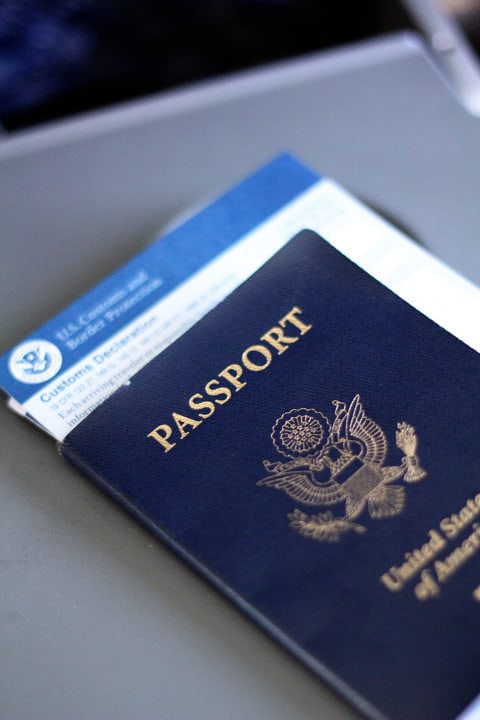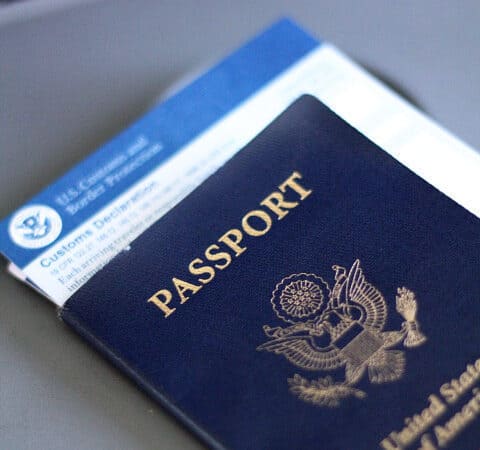Visa Policies for Thailand in 2024
Thailand has recently eased travel restrictions to attract more tourists and stimulate its tourism sector, increasing visitor numbers by offering visa-free visits for visitors from Russia, Kazakhstan, India and Taiwan. They are constantly changing their visa policies for Thailand to attract more tourists.
Now, China is offering visa-free travel for Chinese nationals – this will be permanent unlike its current temporary scheme, due to expire on February 24.
What are the new visa Visa Policies For Thailand?
The new visa policy seeks to revive tourism after it was severely affected by COVID-19 pandemic. Visa requirements were waived for travelers from India and Taiwan while Chinese nationals received extended tourist visas – with 11 million arrivals being recorded before pandemic struck in 2019.
Visa exemptions are part of an effort to revive travel between both nations. Along with waivers, TAT has reduced minimum stay requirements and eased rules on events; reduced its required vaccination levels; lifted quarantine restrictions; and even removed some mandatory face mask requirements for travelers.
The TAT announced that they will allow people to bring more than four family members into the country if they possess the appropriate documentation. Furthermore, when processing long-stay visas at One Stop Service Centres such as OSSEC they require employers to submit more comprehensive tax documentation including copies of wage withholding tax forms and receipts from employees.
What are the new Thailand visa rules?

Thailand has taken various steps to revitalize its tourism industry, including waiving visa requirements for Indian and Taiwanese tourists starting next month until May 2024, lifting travel restrictions for Russian citizens, and ordering airlines to add new routes.
As part of its efforts to attract high-potential foreign workers, Thailand’s government has implemented the Long-Term Resident Visa (LTR). This visa grants individuals a stay of up to 10 years in Thailand and is open to wealthy global citizens, wealthy pensioners, digital nomads and highly skilled professionals.
The LTR visa will permit students to stay for a maximum stay of 90 days with one entry or up to one year with multiple entries, subject to certain restrictions such as sufficient funds for tuition fees and living expenses. Furthermore, face mask requirements have been relaxed; though wearing one remains strongly advised. Ultimately, these changes are meant to bring tourism back to pre-Covid levels.
Does Thailand have visa restrictions?
Thailand offers various visa options to suit different purposes, including tourism, retirement, business and long-term residency. Before visiting, it’s essential to understand its visa requirements and conditions in order to avoid any surprises during your journey.
Note that visa rules and restrictions can change without prior warning, so it’s always advisable to contact the Thai Embassy or Consulate in your home country for the latest updates before planning a trip to Thailand.
Visa on Arrival allows passport holders from 19* countries to enter Thailand for up to 30 days at an airport without first applying for a visa through a Thai Embassy or consulate in advance. In order to be eligible, travelers must meet certain criteria:
What is the visa law for Visa Policies For Thailand?
Before traveling to Thailand as a tourist, businessperson or investor, it’s essential that you understand its visa laws in order to enjoy all its unique experiences without any issues or problems. Furthermore, be sure to stay abreast of changes as rules and requirements may shift with time – it pays off to check before planning a trip!
Thailand’s new visa law should boost tourism and help it meet its Covid-19 targets, in particular benefiting Chinese travelers who play such a significant role in Thailand’s tourism industry.
Visa exemption schemes for tourists will allow Chinese and Kazakh nationals to visit for 30 days on each visit until February 2024, as well as travelers from India and Taiwan – helping increase tourism in an economy still recovering from COVID-19 pandemic.
What are the requirements for a visa in Thailand?
To apply for a visa in Thailand, you will require a valid passport with at least six months remaining on its validity, proof of onward travel arrangements and enough money for your stay in Thailand. Additionally, if you hail from one of the countries requiring yellow fever vaccination certificates you may also be asked for proof.
Thai Elite Visa provides foreigners with multiple entry visas into Thailand over an extended period. In addition, members gain access to a member contact center for support and booking services and many other privileges. If you get this visa you can almost forget the Visa Policies For Thailand since everything will be taken care of.
Tourist Visa Exemption Scheme offers short-term visitors to Thailand an alternative: citizens from certain countries can enter without needing a visa for up to 30 days without incurring fees or penalties. This visa only applies when arriving by air travel with a return/onward ticket out.
Do you need a visa to go to Thailand?
Thailand is making efforts to attract more travelers, particularly from China – its leading pre-pandemic tourism market, with 11 million arrivals last year – by relaxing visa requirements for Indian and Taiwan travelers as they prepare for high season tourism arrivals. This initiative seeks to draw in visitors by eliminating visa requirements.
Travelers from these countries will be eligible to stay in Thailand without needing a visa for 30 days; however, they will still need to submit the TM30 notification of residence form and carry out daily immigration reporting. In addition, it’s wise to purchase travel insurance just in case anything unexpected should arise while visiting Thailand.
Thai Prime Minister Srettha Thavisin made an important announcement for Chinese tourists on January 2, that the temporary visa waiver for citizens of China would become permanent as of March 1. This move forms part of a wider initiative to boost tourism and strengthen bilateral diplomatic ties between Thailand and China, as well as reach their annual tourism goal of welcoming 28 million tourists this year.
Tourist Visa to Thailand
Thailand provides travelers with an array of visa options, from tourism, business, retirement and long-term residency visas to retirement residency permits. Before applying, it is wise to conduct extensive research regarding each specific requirement before applying. Travel insurance should also be purchased prior to any trip to Thailand.
Tourist visas to Thailand are single-entry visas designed for travel for tourism or recreational purposes and available to citizens of many nations such as China, France, Germany, Italy Japan the Netherlands Russia and Sweden. But please check for the latest Visa Policies For Thailand on the Immigration Thailand website.
Thai authorities recently announced they would extend their visa exemption program until 2023 in an effort to boost tourism industry growth. Originally launched on October 1, this initiative has allowed citizens from over 50 countries to visit Thailand without needing visas for stays of up to 45 days without incurring fees; helping revive a sector hit hard by COVID-19 pandemic; eventually leading up to generation of 3.5 trillion baht in tourism revenue by 2024.
Visa policies for Thailand Conclusion
Since October, Thailand’s maximum stay without visa has been extended from 30 to 45 days for visa-free trips, leading to an exponentially greater surge in tourists visiting. TAT credits this initiative with helping it surpass its goal of welcoming over 11 million visitors in 2018, thus exceeding their goal by an astounding 8 percent!
The TAT announced on January 18 that Chinese nationals are to receive permanent waiver of visa requirements starting March 1. This move marks an exciting development in Thai tourism and shows their dedication to strengthening bilateral ties between their nations. Some people do not agree with these visa policies for Thailand since they think Chinese tourists cause a threat to Thailand.
Long-Term Residence Visa is another excellent solution for anyone wanting to live, work, or invest in Thailand. Ideal for digital nomads, retirees, entrepreneurs and investors; valid for 10 years it includes VIP airport transfers and access to Member Contact Center; up to four family members can travel with you; submit TM30 notification of residence reports every 90 days to avoid penalties and make sure all privileges are being enjoyed by its holders.
Whatever you do always keep an eye out for new visa policies for Thailand, before you travel or even when you are inside Thailand. Due to the political situation in Thailand, the visa policies for Thailand can change at any moment.



